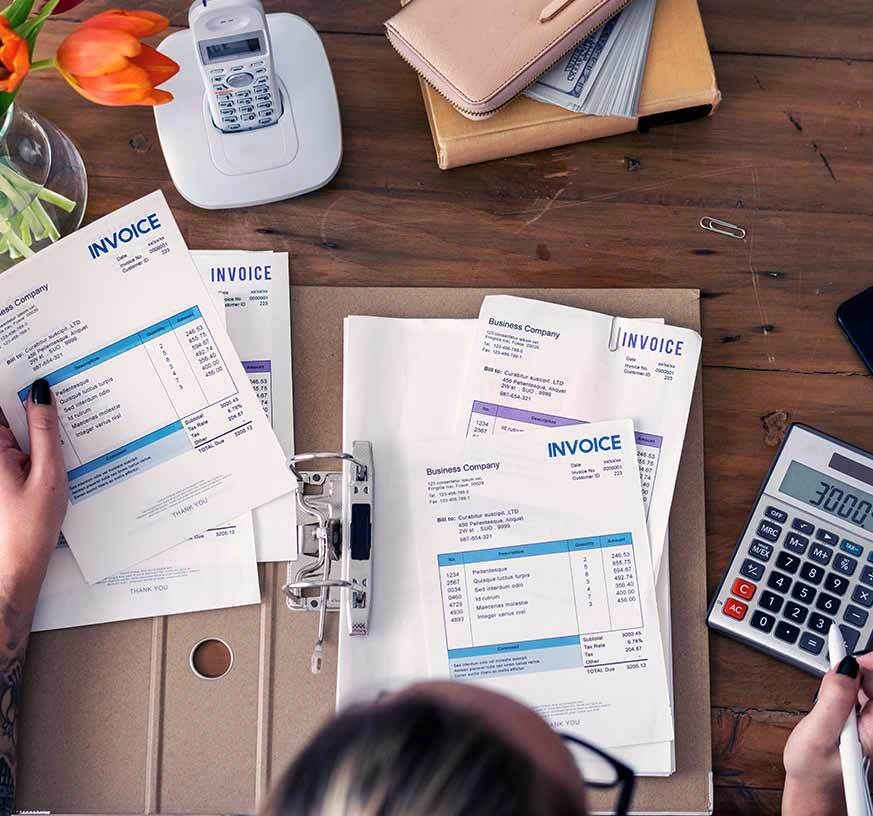Having a business line of credit gives you access to funds for emergencies where you don’t have time to wait for a traditional bank loan, or when the amount of money you need is too low for a small business loan and can be paid back within a month or two. Its primary purpose is to help you manage cash flow for short-term, low-cost, expenses.
A business line of credit can come with high interest rates if you don’t pay off the balance in time, so they should only be used in emergencies and when you’ll have the cash flow in your business checking account to make payments before payment is due.
This guide walks you through the pros and cons of having a business line of credit as well as alternative forms of financing when it may not be the best fit for your needs.
Pros of a Business Line of Credit
The benefits of having a business line of credit include:
- Cash is available on an as-needed basis for emergencies and immediate expenses.
- You only pay interest on the amount you’re currently borrowing and only when you don’t pay the money back before the interest kicks in.
- The funding can be used however you want and whenever you want.
- Once the funds are paid back, they’re available to borrow again without needing to fill out another application.
- Lenders that see your responsibility with borrowing and paying funds back to the business line of credit may use this as a trust factor when considering your business for a business loan.
- It stabilizes cash flow to help you make payroll and other small, operational expenses if vendors are late paying invoices or a slump occurs from natural disasters or the economy.
- It improves your business credit score because credit scoring bureaus use how much credit you have available as a scoring factor.
- It has lower interest rates than business credit cards.
Cons of a Business Line of Credit
The negatives of having a business line of credit include:
- Annual fees that your company may incur to keep the line of credit open.
- Paying an initial fee to open the business line of credit.
- Potentially higher interest rates than a typical small business loan if you don’t pay the balance before it comes due.
- A temporary lowering of your business credit score when a hard inquiry is made for your approval.
- A long-term lowering of your business credit score when you don’t pay the money back and it gets reported to the business credit bureaus.
- Withdrawal fees each time you use the funds available (applied by some lenders).
- Variable interest rates that can impact your cash flow if you’ve only borrowed what you can afford when the rate was lower.
- Temptation to start overspending or using funds for risky investments or purchases that you wouldn’t normally risk cash flow on, as it is available and doesn’t immediately deplete your business bank account.
- Limited funds available that won’t cover larger expenses.
- Fees charged for idle or unused business lines of credit, requiring you to use the “emergency funds” to avoid paying the penalty.
Having your unused business line of credit available to pay repair people if machinery breaks and you’re waiting for your new business credit card to arrive, or if you need to restock inventory and have to get the payment to the vendor the same day, is a really nice luxury to have. But there are times when other forms of business financing may be better.
Alternatives to a Business Line of Credit and When to Use Them
There are multiple times a business line of credit comes in handy, but not every situation is going to be the right one to use it. Especially when there are other forms of business financing available. Here are some alternatives and when they make more sense than using your business line of credit.
Restocking Slow-Moving Inventory
If you have staples that always sell but don’t fly off the shelf, inventory financing is a better option than an unused business line of credit. Because you won’t make the money back in time to pay back the amount from the line of credit before interest comes due, inventory financing will likely be better because this type of short-term business loan normally has a lower interest rate than a business line of credit.
Inventory financing can be a 3-, 6-, or 12-month loan (depending on the lender), so as the product sells and the money comes back to your account, you can pay it back with lower interest than the rate on an overdue balance from a business line of credit.
A Slow Economy
A small business loan is better than a business line of credit when the economy slows and you know it won’t pick back up within the next few months to a year. Small business loans normally have lower interest rates than business lines of credit, so you have lower monthly payments, which helps keep cash flow stable while you wait for the market to pick back up.
Accounts Receivables Are Late
When accounts receivable is late, or you have a net 60 or 90 on payments due, merchant cash advances or invoice factoring could be a better option than using your unused business line of credit.
Merchant cash advances let you borrow money from vendors or suppliers where you give them a portion of your credit card orders instead of having to pay interest. Invoice factoring can cover some short-term expenses and is a financing option where you sell invoices that are due (like net 60 or net 90) to another company and they can collect on them.
Both options get you the financing you need quickly while not requiring you to make potentially large interest payments on a business line of credit.
Variable Interest Rates
When your business line of credit has variable interest rates, look to see what the current rate is and compare it to other options you have. Banks and lenders might adjust rates at different times, so if your line of credit recently adjusted higher than your business credit card, use the card to get perks like travel points or cash back. Another option could be financing purchases from your personal bank accounts and paying yourself back as money comes in.
Business lines of credit are great when you can cover the cost of taking one, when you can have it sit idle for emergencies, and when you need cash fast and can pay it back quickly. When the economy hits a lull or you need extra time to pay back the balance, small business loans or merchant cash advances may be better options than your unused business line of credit as the interest rates or fees will likely be lower, helping you to stabilize cash flow and keep your business running.
SmallBusinessLoans does not provide tax, legal or accounting advice. This material has been prepared for informational purposes only. You should consult your own tax, legal and accounting advisors.
















